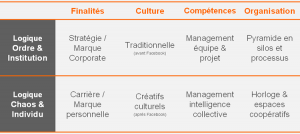
Huh?
The next corporate revolution will be power to the peons
‘Bureaucracy has to die,' says business consultant at CITE Conference (see video below)
Computerworld – SAN FRANCISCO — Microsoft, Hewlett-Packard, Dell and Intel have something in common: They all came late to the mobile revolution.
Why? Because they're companies where management is top-down and responsibility for innovation and change is concentrated among executives with strict bureaucratic control over workers.
That's got to change, Gary Hamel, a consultant and management educator at the London School of Business, said at the CITE Conference and Exhibition here this week. And he was not alone in his belief that the next revolution in corporate America won't be technological, it'll be social.
Businesses are on the cusp of a leadership revolution because millennials moving into the workforce are “the most authority-phobic” generation in history, Hamel said.
“Now, we have a generation with a completely different set of expectations — and probably the most core expectation they have is that if you're a leader, it's only because people are wiling to follow,” he said. “The real problem we're up against is not technology, it's that management DNA in companies…. When you concentrate the responsibility for innovation at the top, you're holding your capacity to change hostage. It disempowers the little people.”







